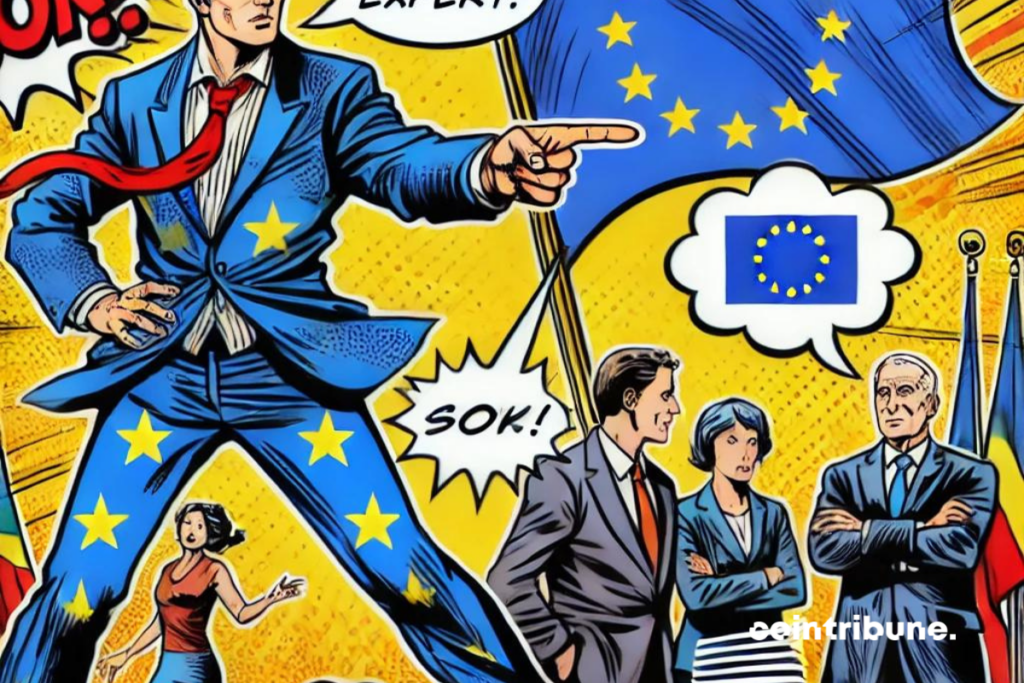Elon Musk Denounces the EU's Secret Censorship on Social Media!
A resounding scandal shakes the European Union. Elon Musk, the CEO of X (formerly Twitter), accuses Thierry Breton and the European Commission of practicing secret censorship on social networks. Musk claims the EU proposed an “illegal secret deal” aimed at discreetly censoring online content, a revelation that jeopardizes the credibility of European institutions and raises questions about freedom of speech and the regulation of digital platforms.

Elon Musk vs Thierry Breton
Elon Musk, known for his bold statements, did not hesitate to publicly denounce what he considers an attempt by the EU to manipulate online information. According to him, Brussels proposed a deal to X to censor content without informing the public, in exchange for immunity against fines provided by the Digital Services Act (DSA).
Musk claims that other platforms have accepted this deal, but that X refused, preferring to defend freedom of speech.
This confrontation has intensified the debate on the transparency and ethics of European regulators, while highlighting the controversial practices of some institutions.
Freedom of speech remains a fundamental pillar of democracy. However, it often faces challenges in the digital context.
Musk’s accusations raise crucial questions: How far can regulators go to control online content without falling into censorship? The EU’s practices, if proven, could create a dangerous precedent for freedom of speech on the internet.
Thierry Breton, in response to the accusations, denied the existence of a “secret deal.” He emphasized that the EU follows transparent regulatory procedures and that any censorship proposal is unfounded. Nevertheless, the debate remains open and fuels concerns about the balance between regulation and censorship.
Decentralization: A Viable Solution?
In the face of these controversies, decentralized social networks present themselves as a credible alternative. They help avoid censorship and guarantee freedom of speech. Unlike centralized platforms, these networks rely on distributed infrastructures. Indeed, this makes censorship much more difficult.
Mastodon is one of the most popular examples. It operates on a system of federated servers called “instances.” This allows users to create and manage their own servers with their own moderation rules. This model offers great autonomy and reduces the risks of centralized censorship.
Nostr uses an open protocol where messages are transferred via relays without being stored on centralized servers. This ensures that user data remains private and secure, while being resistant to censorship.
Steemit and Odysee represent models of social networks based on blockchain. They reward users in crypto for their contributions. These platforms offer increased transparency and autonomy. Indeed, this allows content creators to monetize their works without centralized intermediaries.
The conflict between Elon Musk and the EU reveals the growing tensions between regulation and freedom of speech in the digital space. Decentralized social networks offer a glimmer of hope for those seeking to escape censorship and maintain a free and open internet.
Maximize your Cointribune experience with our "Read to Earn" program! For every article you read, earn points and access exclusive rewards. Sign up now and start earning benefits.

Fascinated by Bitcoin since 2017, Evariste has continuously researched the subject. While his initial interest was in trading, he now actively seeks to understand all advances centered on cryptocurrencies. As an editor, he strives to consistently deliver high-quality work that reflects the state of the sector as a whole.
The views, thoughts, and opinions expressed in this article belong solely to the author, and should not be taken as investment advice. Do your own research before taking any investment decisions.